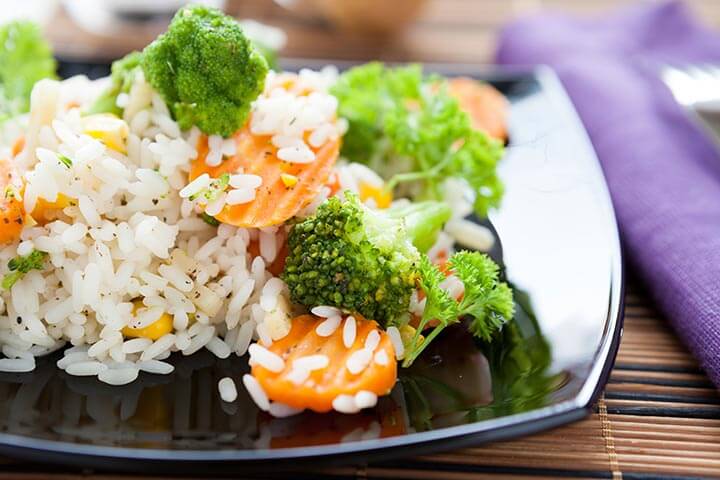How a balanced diet and healthy eating habits can help your child’s emotional & mental well being!
Let’s move ahead to know which habits actually help your child to grow emotionally, mentally & spiritually.
Key points to remember:
Prepare meals together. Kids can take on this role happily. It’s a great way to teach them from where the food is coming from. Eat together as a family as much as you can. Eating as a family can help increase independence, self esteem, and a feeling of togetherness. Your child should eat regular recommended servings of a variety of whole foods at every meal in a day. Almost every meal..
Role model positive body image and language and behaviors around healthy eating and living. It works with me, so can with you. As a parent, your are the primary nurturer of your family, a very powerful role.You have the unique position to decide how your child eat today. You also have the power to be a role model & model healthy behavior and attitudes around eating, body image, and lifestyle choices. A healthy diet consists of regular, recommended servings of meals and snacks made up of mostly whole foods (foods that have not been highly processed).

So what is a ‘balanced’ toddler diet?
A balanced diet for a toddler is made up of a combination of the following:
• Starchy foods
Examples include bread, rice, cereals and potatoes. Starchy foods should be offered at every meal and can be offered as a snack too.
• Fruit and vegetables
Try and offer a range of different colored fruit and vegetables as they all contain different nutrients. Try to include some at each meal and offer them as snacks, but remember children model their behavior from others, so make sure you include these foods in the whole family’s diet too.
• Milk, cheese and yogurt
Milk should be part of your toddler’s diet every day but be sure to include other calcium-rich dairy food too. Your toddler should be having three portions of dairy food per day, which can include snacks.
• Meat, and alternatives
Examples include chicken, eggs and pulses. This food group provides your toddler with the protein they need. Meat and pulses are also good sources of iron. Iron is essential for your toddler as it plays an important role in brain development.
• Foods high in fat and sugar
Examples of foods high in fat and sugar are oils, butter, cakes and biscuits. Although fats and sugars are an energy source for your toddler, they only contain very small amounts of vitamins and minerals and should therefore be limited. The key is BALANCE. It is important to consume balance of macro nutrients carbohydrates, healthy fats, and protein & micronutrients (vitamins and minerals).Your child should also consume an acceptable range of calories for their growth stage and activity level.

A balanced diet means that most of your child’s nutrition comes from the four food groups: vegetables and fruits, grain products, milk and alternatives, meat and alternatives. Together these foods provide essential nutrients for brain health, including foliate, vitamin B12 , vitamin C, iron and omega.
How can you balance your child’s meals and snacks
Balance your child’s plates at every meal
Breakfast is a vital meal to fuel your child for the day ahead. If they are not ready to eat what’s in the plan or menu, offer yogurt and fruits, add simple boiled eggs, or add legumes or lentils like black chana or moong daal and oats dalia, add variety daily, eat what you want your children to eat, pick healthy options from the kitchen.
Protein strong in the morning gives your child a healthy kick for the day.
Packed Lunches offer a great opportunity to try out a variety of foods. Include small portions of different foods that are easy to pack and not too messy. Paying attention to what to comes home at the end of the day will help you understand the foods your child may need to be encouraged to try, or may be simply dislike. Lunches should be consists of lean protein, lentils, salads or soups. Rajma tikki or Palak paratha will be suffice for the meantime rather than running around the child and pressuring to finish the plate
Snacks are important to have on hand for children of all ages. So stack your cupboards with nutritious food. Snacks options could be tofu sandwiches, eggs, soups, Idlis, paneer stuff paratha, yogurt with granola & fruits, fruits, Palak pasta..
Dinner can be simple as necessary, once you aim to include veggies and source of lean protein. Planning, cooking and eating with your family can make dinnertime time more a more fulfilling experience.
Planning and preparing meals and creating balance
You can help your child to appreciate the balanced diet by encouraging them to plan, shop and prepare meals with you. Involving your child in mealtimes tasks will help them shop smartly, understand food safety and appreciate the efforts that goes into creating family meals. Sharing a meal with those closest to you is a great way to strengthen family bonds. Laughter and support at the table help the child to build his communication skills and improve their self- esteem. As a parent, you can help your child feel good about their body and what they eat and be a model, by snacking on nuts, vegetables and fruits instead of highly processed foods.
If you are concerned of your child’s eating patterns, behavior and attitude towards eating and their own body image, please get in in touch with me and get into deeper conversation to transform their picky eating habits.
Happy Feeding !


